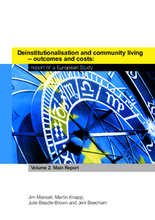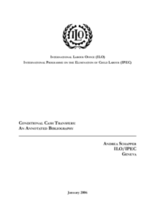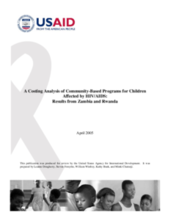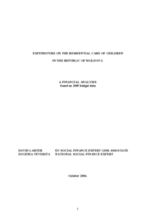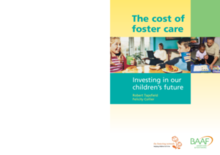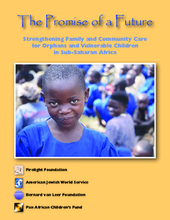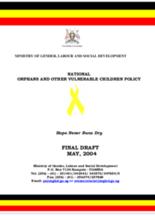Displaying 171 - 180 of 189
This project aimed to bring together the available information on the number of disabled people living in residential institutions in 28 European countries, and to identify successful strategies for replacing institutions with community-based services, paying particular attention to economic issues in the transition. It is the largest study of its kind. This project was funded in order to identify as a priority the practical considerations of how to support states making the transition to community-based services, including managing the costs of doing so.
This document contains a bibliography global conditional cash transfer documents.
This report reviews the faltering progress made in childcare reform across Central and Eastern Europe and the former Soviet Union over the 15 years since the ‘orphanages’ of Romania were revealed to the world.
A report which analyzes the costs associated with various types of interventions for orphans and vulnerable children, including institutional care, tracing and reintegration, and community-based care.
Reports on the financial costs of residential care for children in the Republic of Moldova. Highlights significant financial inefficiencies and advocates for closure of residential institutions.
This report assesses the expenditure which is required to transform foster care services across the UK, in order to give children in public care the same opportunities to have a successful future as other children. Contains relevant statistics and social welfare system reform recommendations.
A brief document advocating for the strengthening and support of community based responses to children and families affected by HIV/AIDS in Africa.
Economist article which argues for changes in US federal welfare funding to maintain family unity and reduce the numbers of children entering into foster care.
This paper analyses the financial costs of residential services as compared to community-based services in Moldova. It also addresses the negative effects of institutional care on the well-being of children and society as a whole.
This document is the official policy governing National Orphans and OVC of the Ministry of Gender, Labour and Social Development (MGLSD) of the Republic of Uganda. The policy interprets a vision of a society where all orphans and other vulnerable children live to their full potential, where their rights and aspirations are fulfilled.

